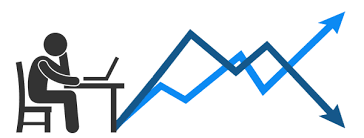
Significant Changes in U.S. Securities Market Trading Conditions
Charles Schwab Corporation, a leading provider of financial services in the global financial market, has extended its trading hours for stocks and ETFs to 24/5 through its Thinkorswim platform. Previously, Ameritrade, the first company in the world to enable such trading, pioneered this innovation before being acquired by Schwab in 2020. The company plans to gradually expand access, starting with a small group of clients and extending to all clients by 2025.
Why it happened?
As was said by Schwab: “Our goal has always been to offer and expand access to 24/5 trading in a responsible way that takes into account client demand, the evolving dynamics of the overnight trading market”.
It gives a competitive advantage and additional capabilities for clients.
Advantages of Trading Beyond Standard Hours
Enhanced Accessibility and Convenience
Trading outside regular market hours offers greater accessibility and flexibility, allowing investors to execute trades at their convenience, regardless of the traditional trading schedule.
Timely Response to Market-Moving News
With many companies announcing earnings or other critical updates after markets close, extended hours of trading enable investors to promptly adjust their portfolios. This eliminates the need to wait for the next market session, reducing the risk of missing significant price movements.
What About the Risks?
Price Uncertainty
During regular trading hours, quoted prices are consolidated across all venues, ensuring you see the best available rates. However, in extended-hours trading, prices often come from a single venue and may not align with those listed on other electronic systems, potentially leading to discrepancies.
Reduced Liquidity
After-hours markets typically see lower trading volumes, resulting in wider spreads between the bid price (highest buyer offer) and the ask price (lowest seller offer). This can make it challenging to execute trades efficiently, and some stocks may not trade at all during these hours.
Lack of Index Data
Index values are generally not calculated or made publicly available after regular trading hours. This can be a disadvantage for individual investors looking to trade index-linked products during extended hours. In contrast, professional traders often rely on advanced systems to compute index values in real time, giving them a competitive edge.
Source: corporatefinanceinstitute.com/
Some notes about other leaders.
In recent years, brokerages and exchanges have sought to leverage the strong performance of the U.S. stock market by extending trading hours. Robinhood introduced its 24-Hour Market last year, steadily increasing the range of stocks and ETFs available for overnight trading. Similarly, Intercontinental Exchange), the parent company of the New York Stock Exchange, announced plans to expand trading on its digital platform to 22 hours per day. Executives highlighted this move as a testament to the resilience of U.S. capital markets and the rising global demand for its listed securities.
Why this novelty can be useful or useless?
Unless you are not a client of Schwab, this novelty means almost nothing to you. You can use Thinkorswim and see the activity on the overnight market, but unless you become a direct client of a Schwab brokerage, you will not be able to participate in it, which is quite limited to people outside of U.S. This limitation may exclude international investors or those using other brokerage services from leveraging the potential benefits of overnight trading.
Furthermore, even for U.S.-based traders, access to the overnight market may not always translate into tangible benefits. The overnight market often experiences lower liquidity, which can lead to higher bid-ask spreads and increased volatility. Traders must weigh these factors against the potential advantages of extended market access.
To get a clear look at the potential that the extended market has with regular, please, study this table.
Source: www.schwab.com/
Overall, for most traders, this novelty means nothing since they are not direct clients of Schwab brokerage, which is possible mostly for Americans, in the case of international clients there are limitations so there will not be a huge change in market conditions for them.
Other brokerages suggesting similar conditions:
Several brokerages allow extended-hours trading, with some even enabling nearly round-the-clock trading for select securities on the U.S. stock market. Here are notable examples:
Robinhood: Offers a 24-hour market feature allowing trading of over 900 stocks and ETFs 24/5, starting at 8:00 pm EST on Sunday and ending at 8:00 pm EST on Friday
Webull: Provides a 24/5 trading feature for select securities in addition to regular pre-market (4:00 am - 9:30 am EST) and after-hours (4:00 pm - 8:00 pm EST) sessions
Interactive Brokers: Extends trading hours from 4:00 am to 8:00 pm EST, with plans to offer broader overnight trading
Pepperstone: Allows 24/5 trading on certain U.S. equities, such as Apple, Tesla, and Microsoft, via specialized symbols (e.g., AAPL.US-24 for overnight trading)
Several brokers allow extended-hours trading, enabling retail investors to trade beyond the regular U.S. market hours of 9:30 AM to 4:00 PM EST. Pre-market trading usually occurs from 7:00 AM to 9:30 AM EST, and after-hours trading typically runs from 4:00 PM to 8:00 PM EST. Some platforms even offer overnight trading, further extending the trading window.
Here are some brokers that offer extended-hours trading with varying access times:
Fidelity: Offers pre-market trading from 7:00 AM to 9:28 AM and after-hours trading from 4:00 PM to 8:00 PM
Charles Schwab: Pre-market from 7:00 AM to 9:25 AM and after-hours from 4:05 PM to 8:00 PM
Tradier: Provides pre-market from 7:00 AM to 9:28 AM and after-hours from 4:00 PM to 7:55 PM
Tastytrade: Pre-market from 8:00 AM to 9:30 AM and after-hours from 4:00 PM to 8:00 PM
Speedtrader: Allows trading from 8:00 AM to 9:30 AM in the pre-market and 4:00 PM to 8:00 PM in the after-hour
